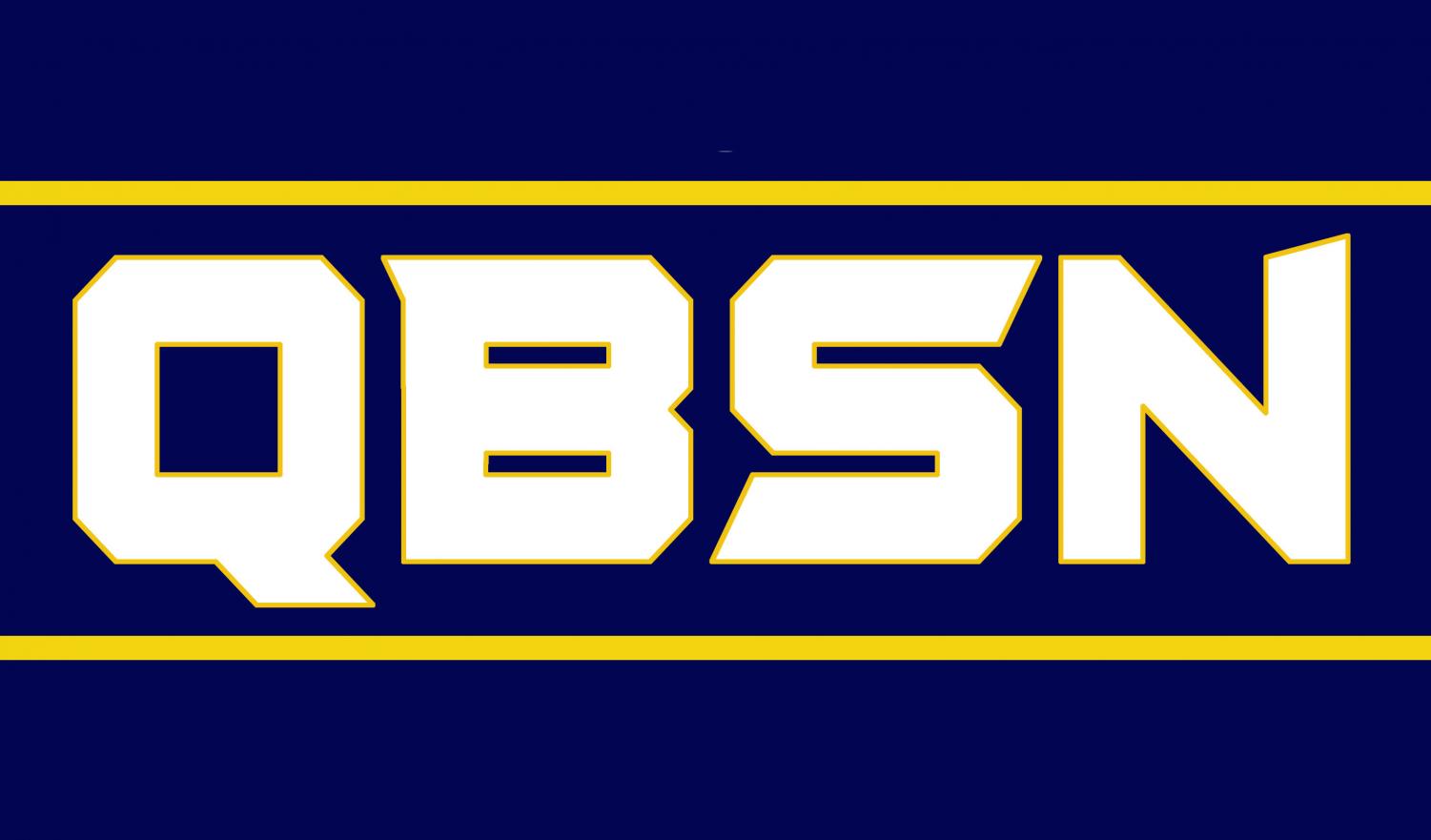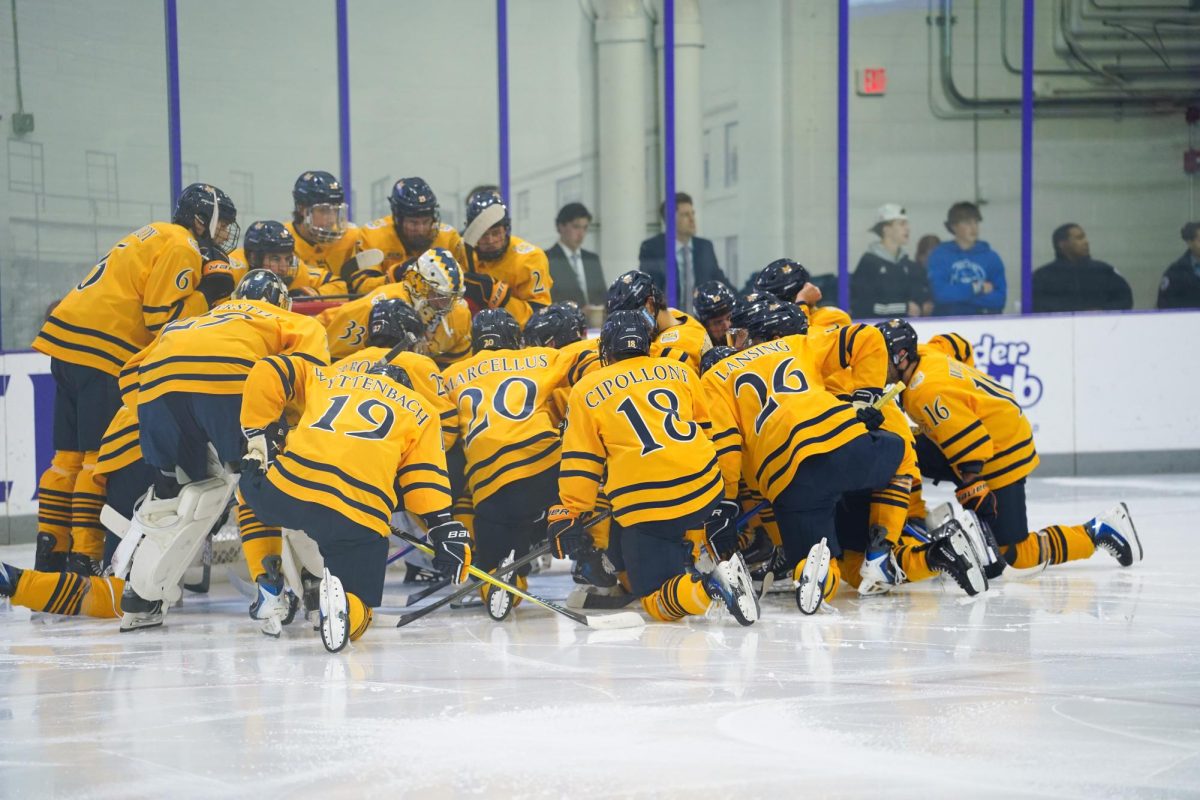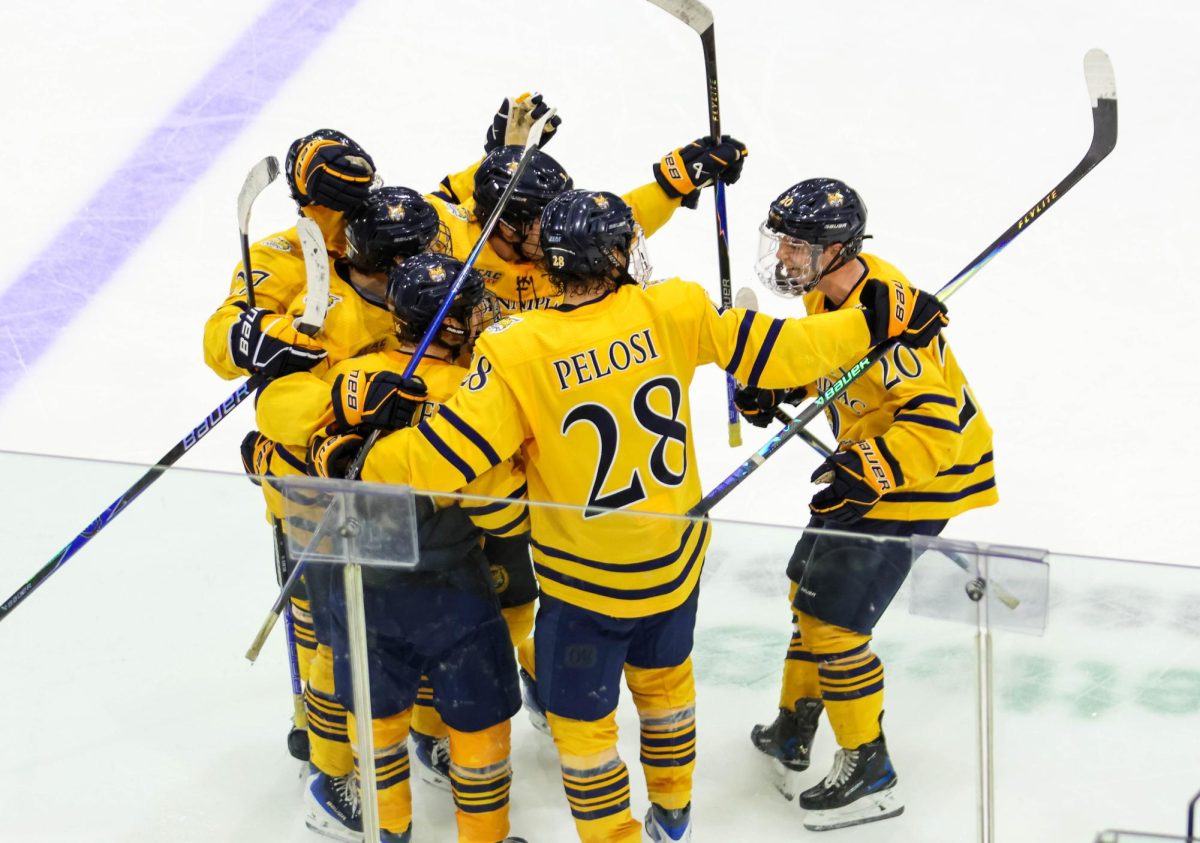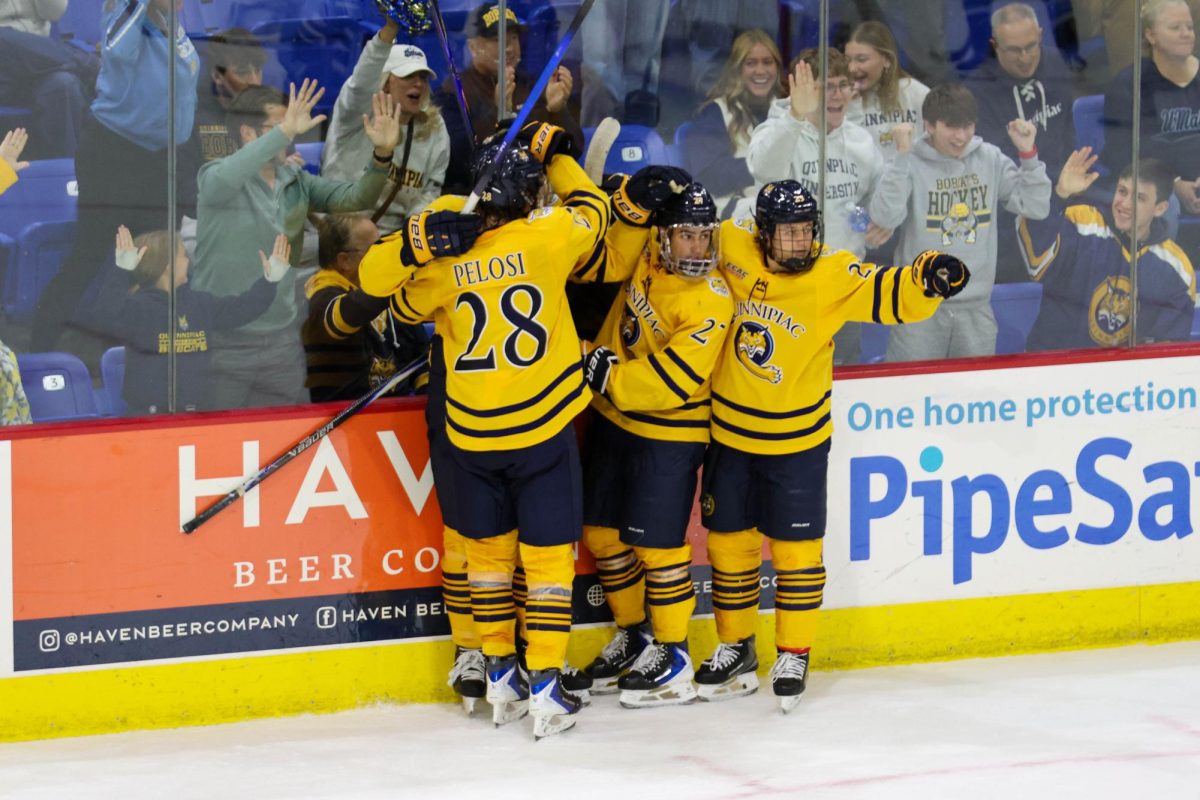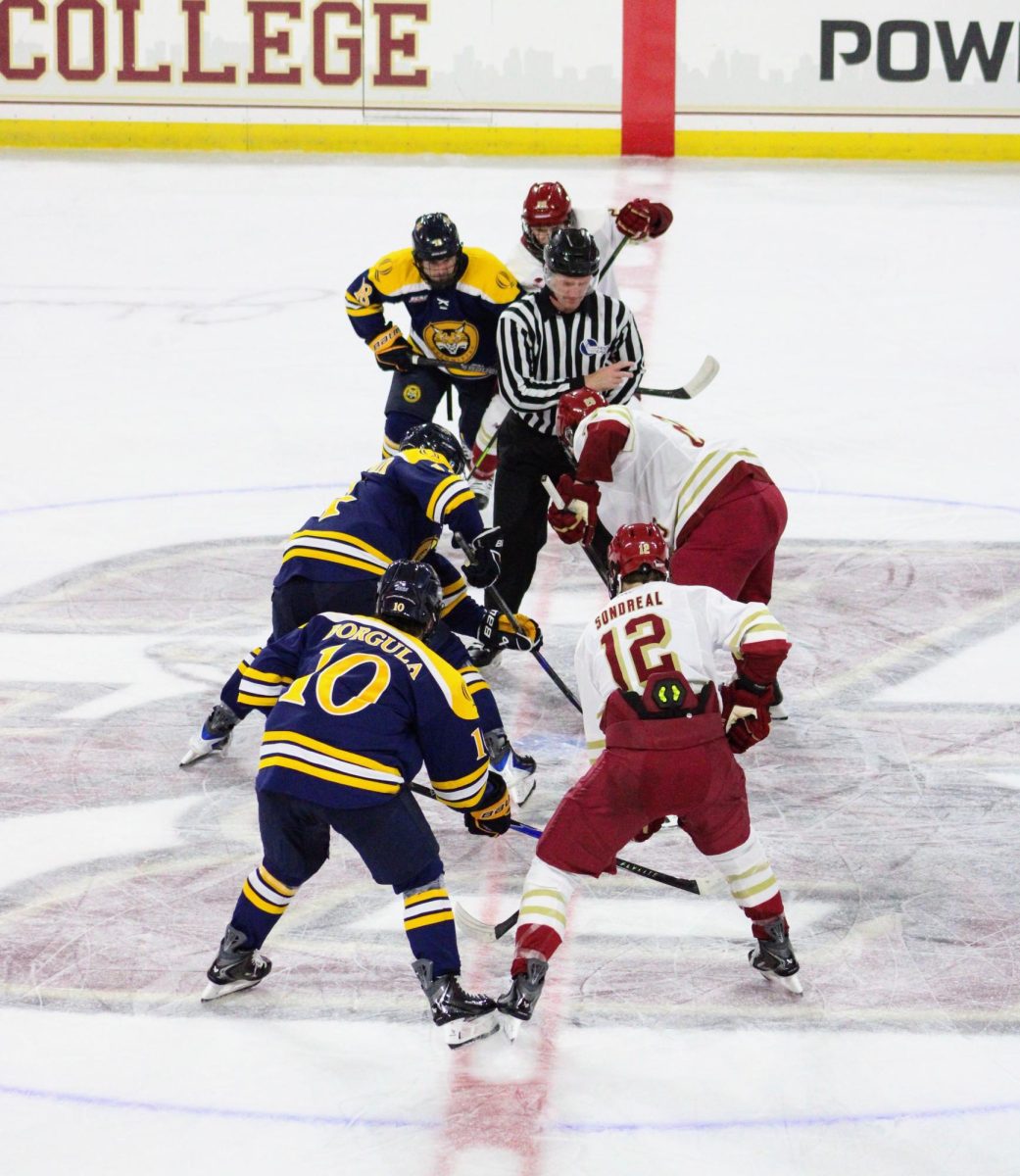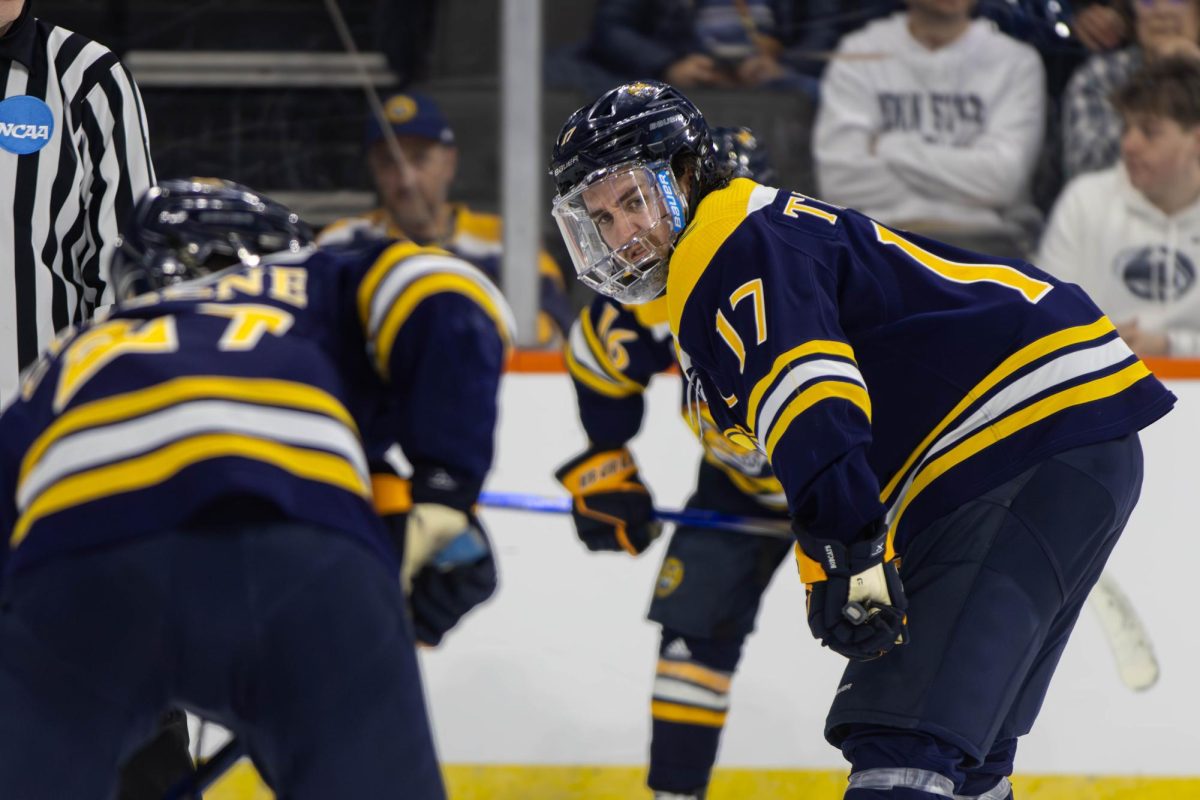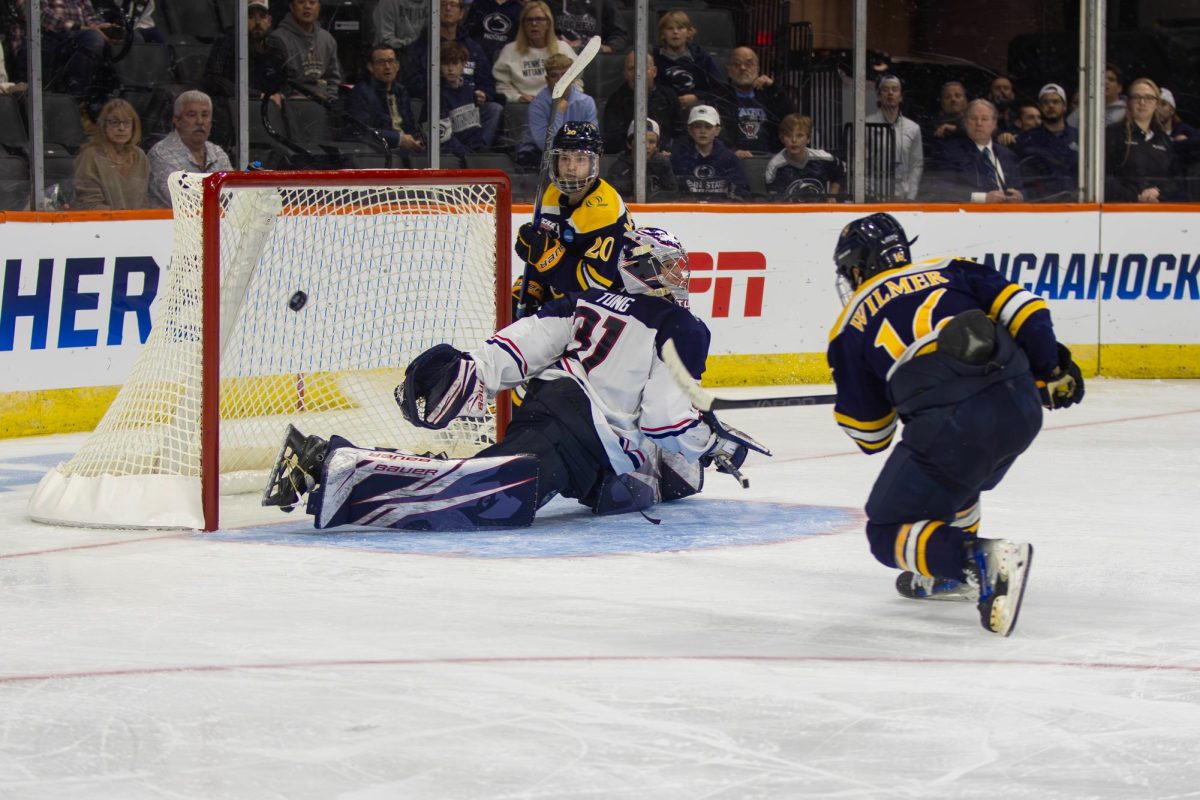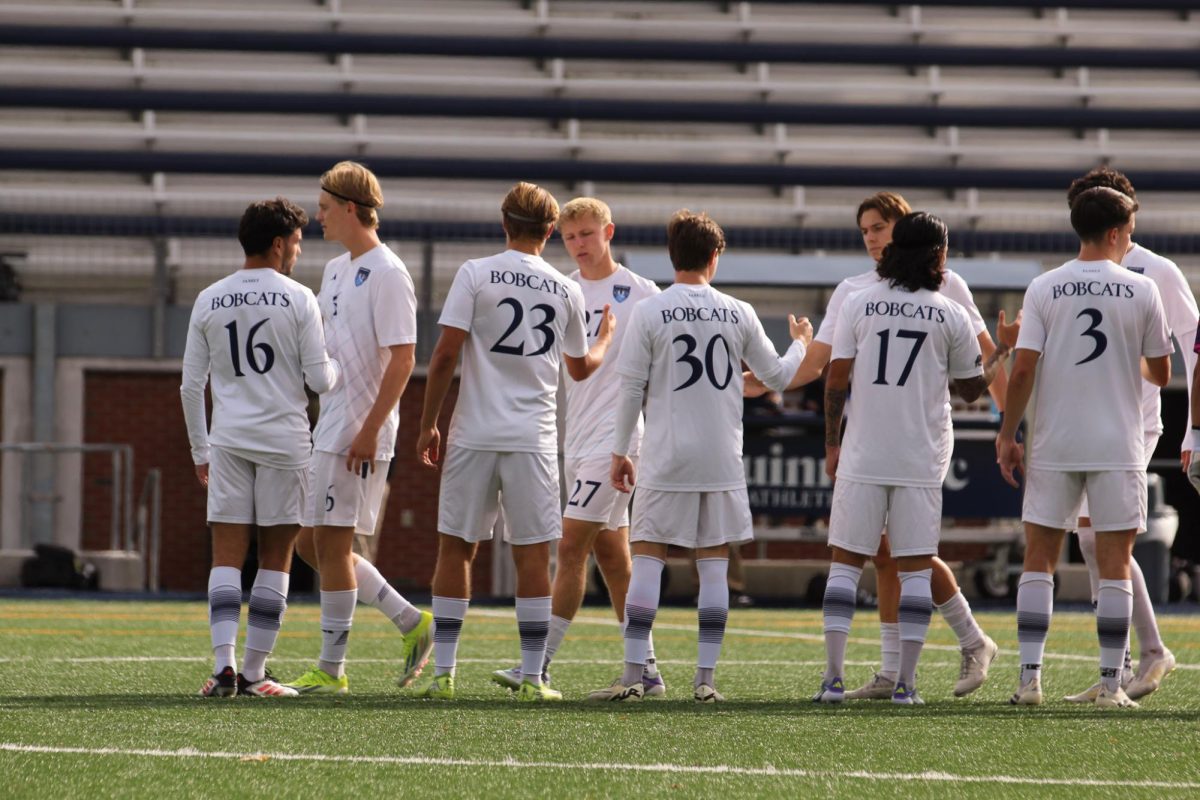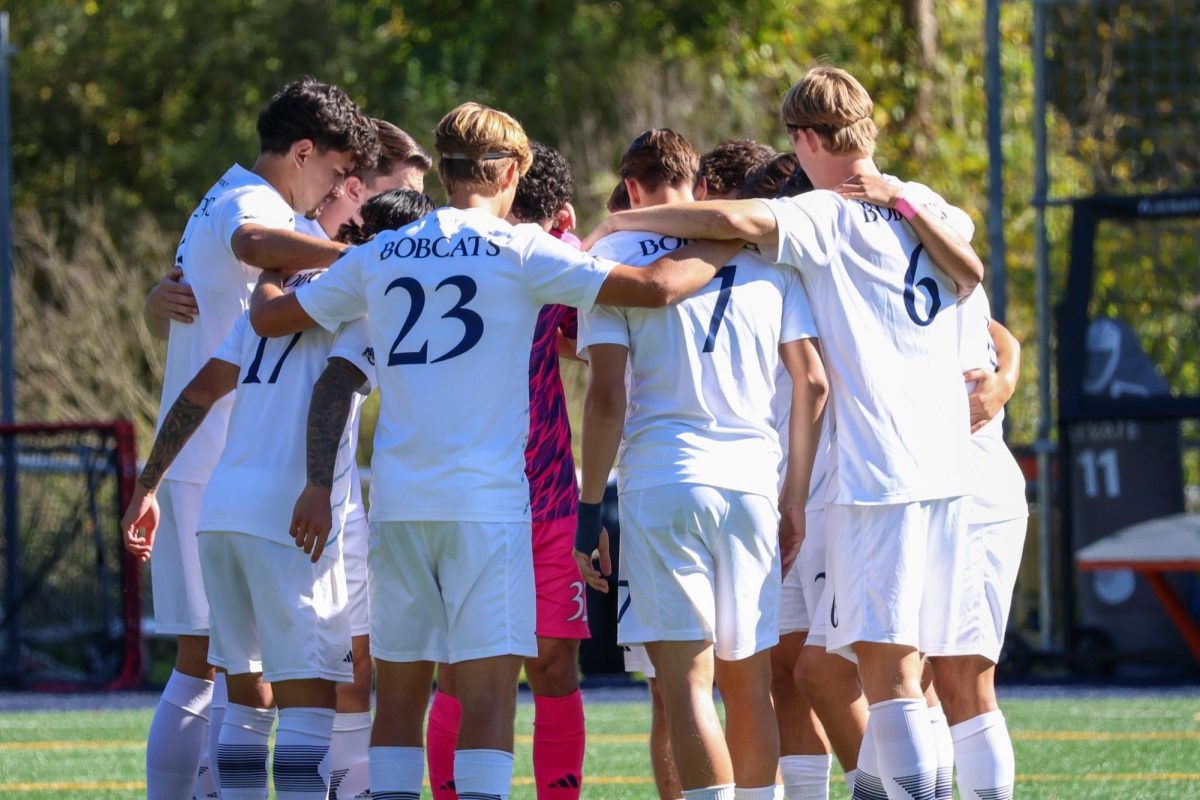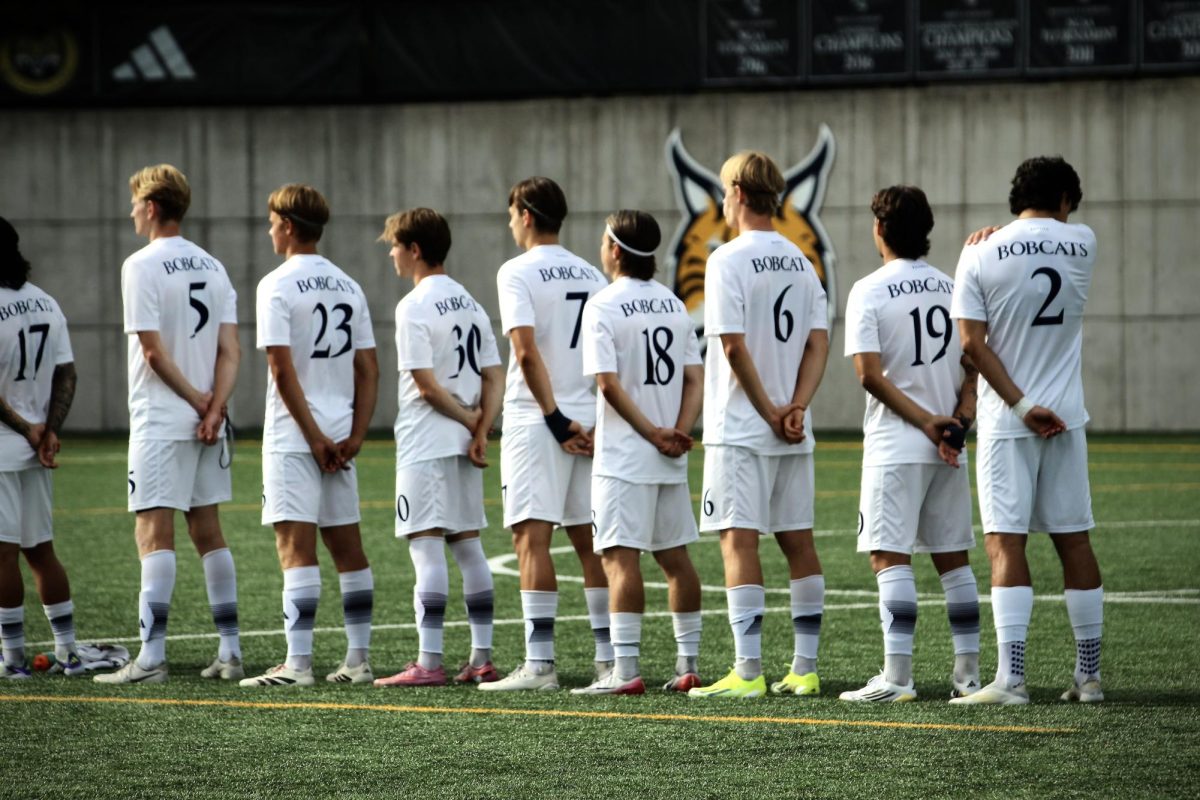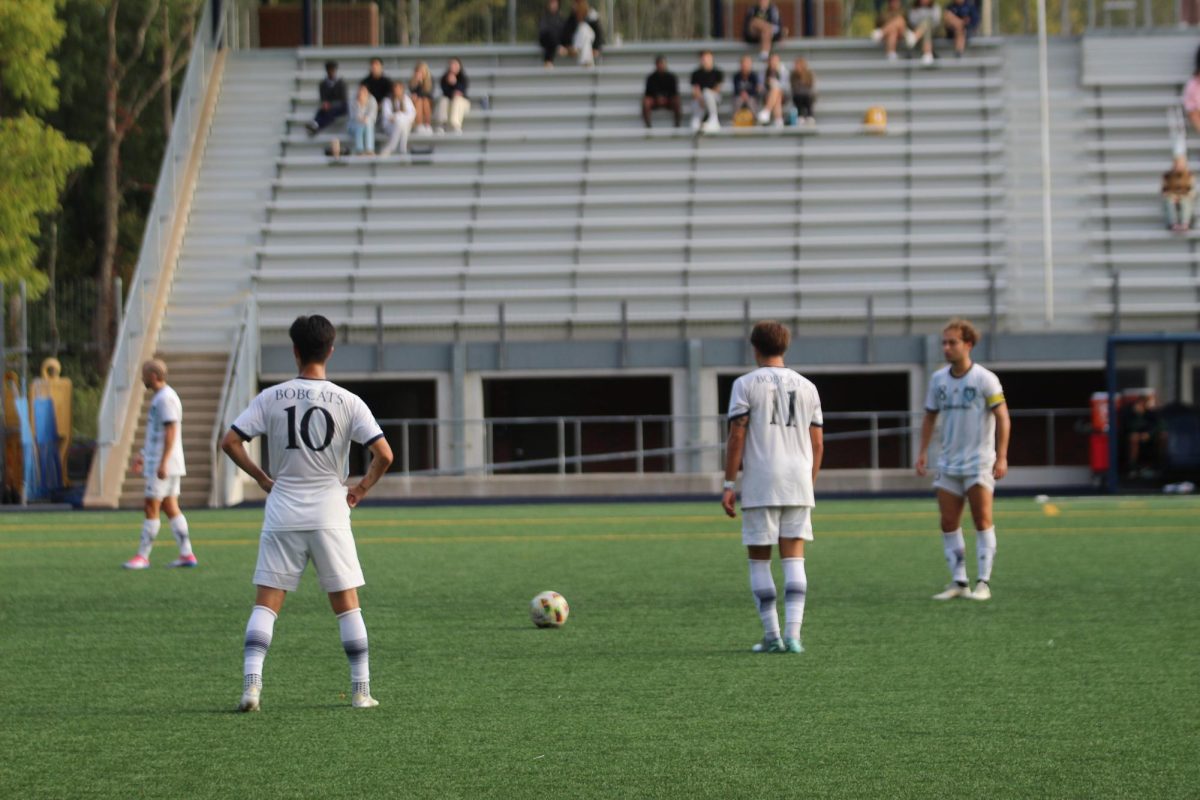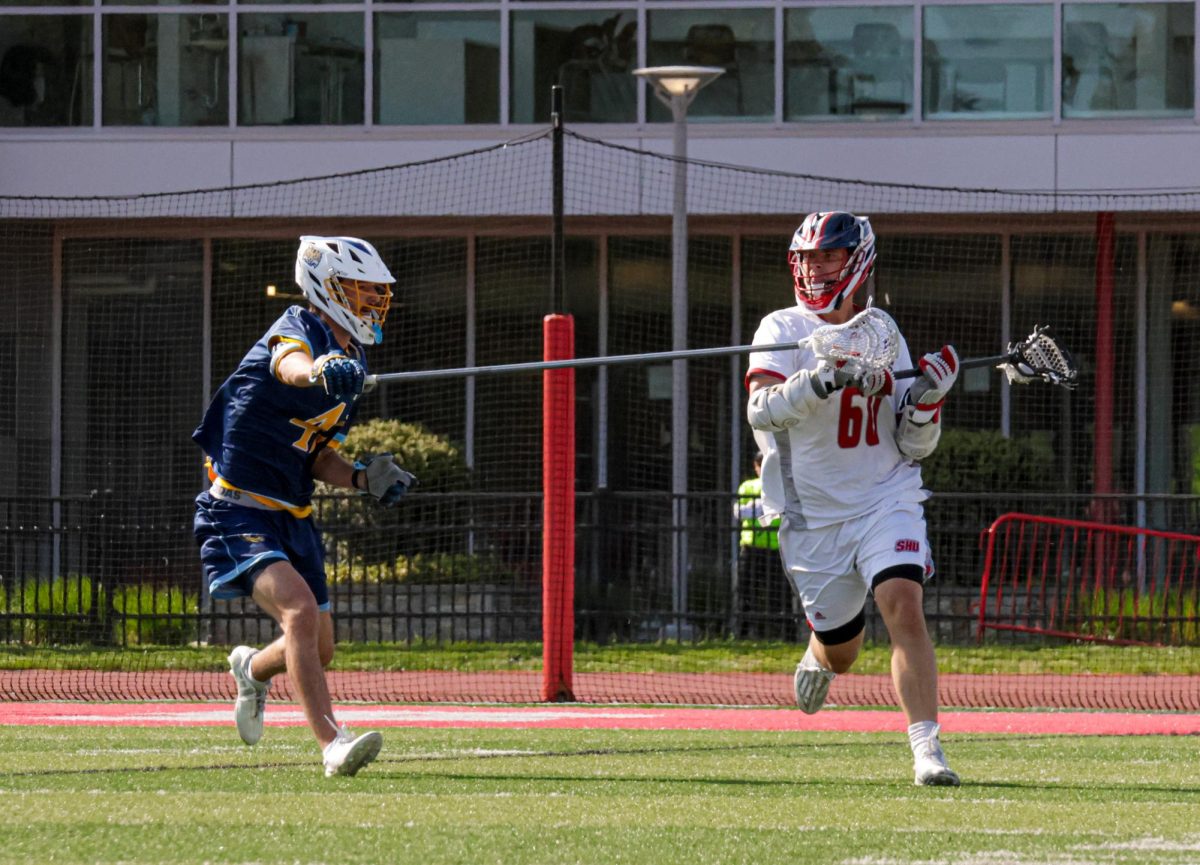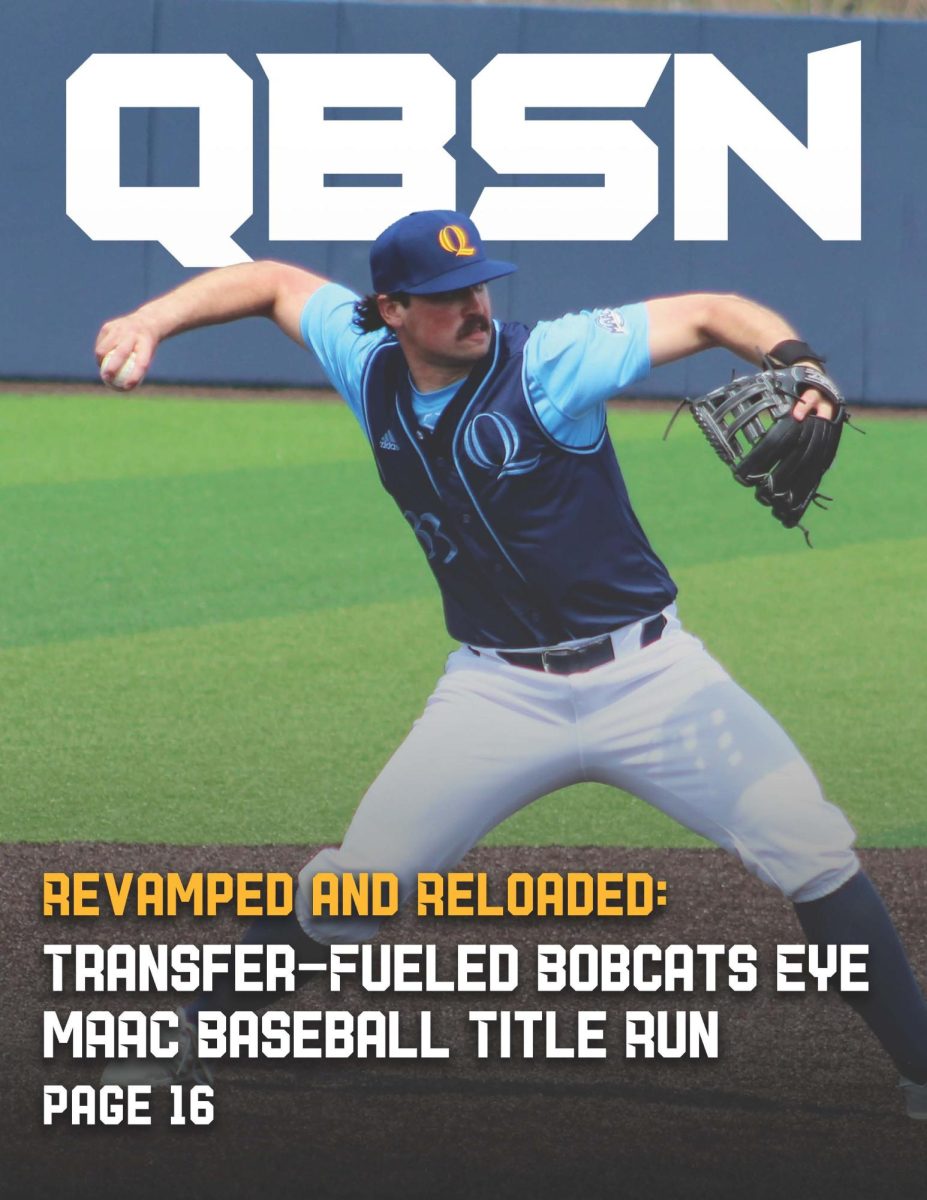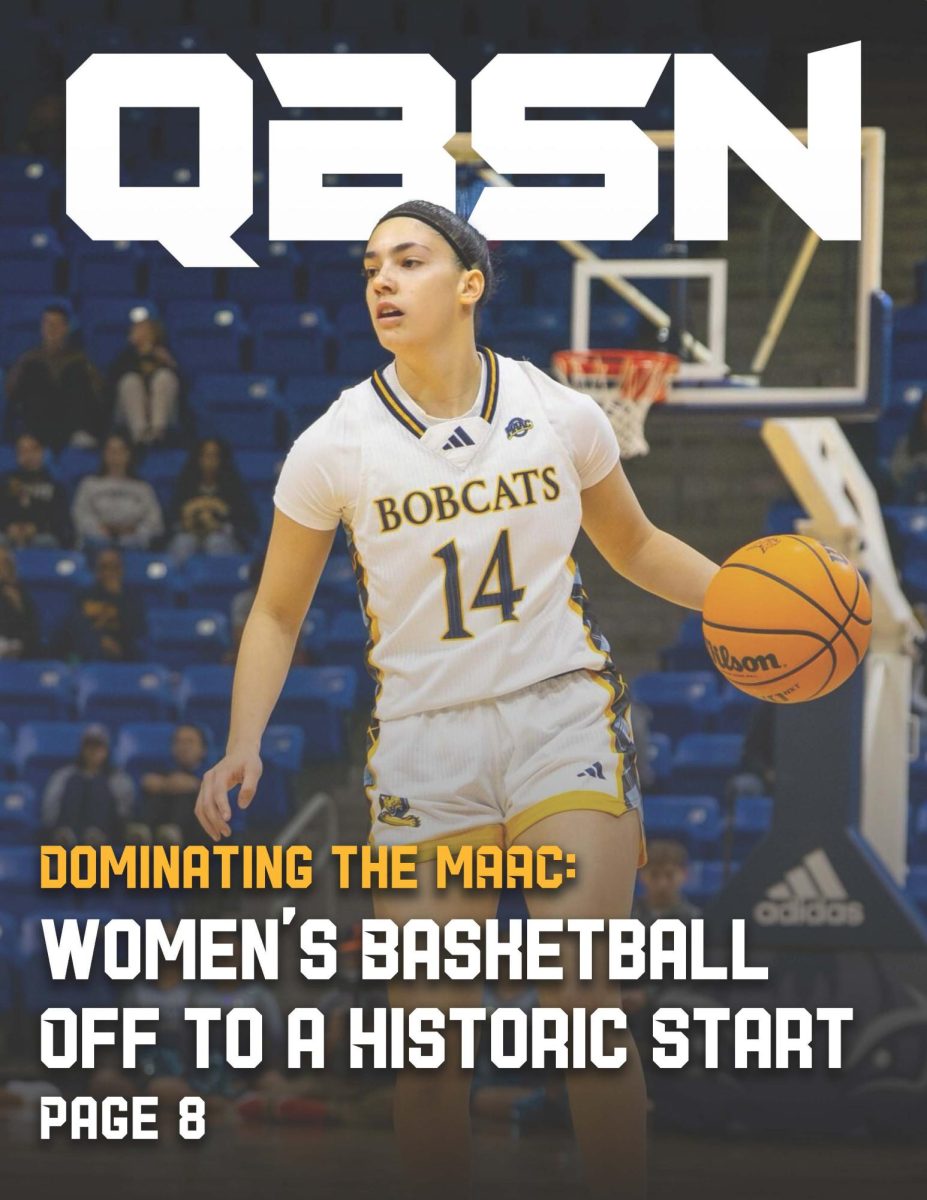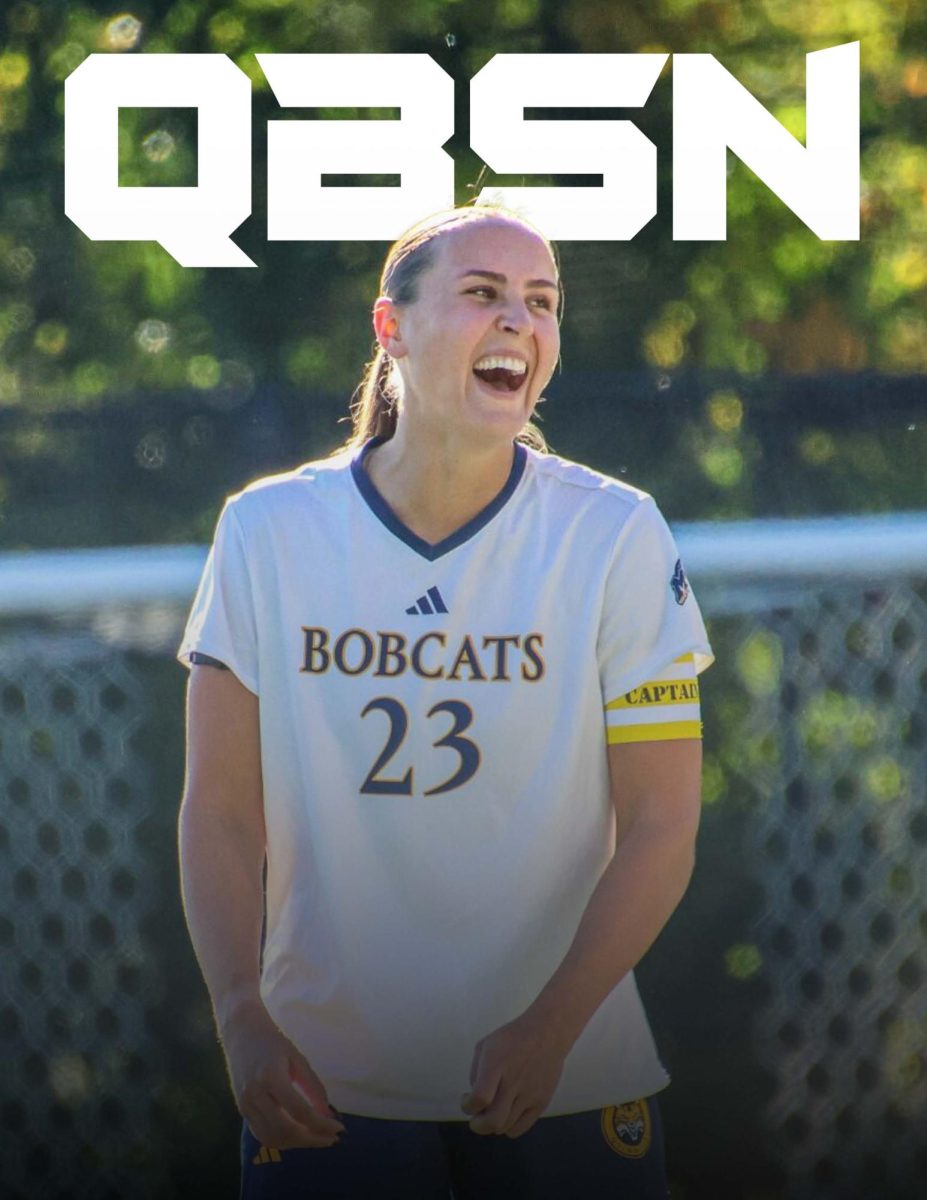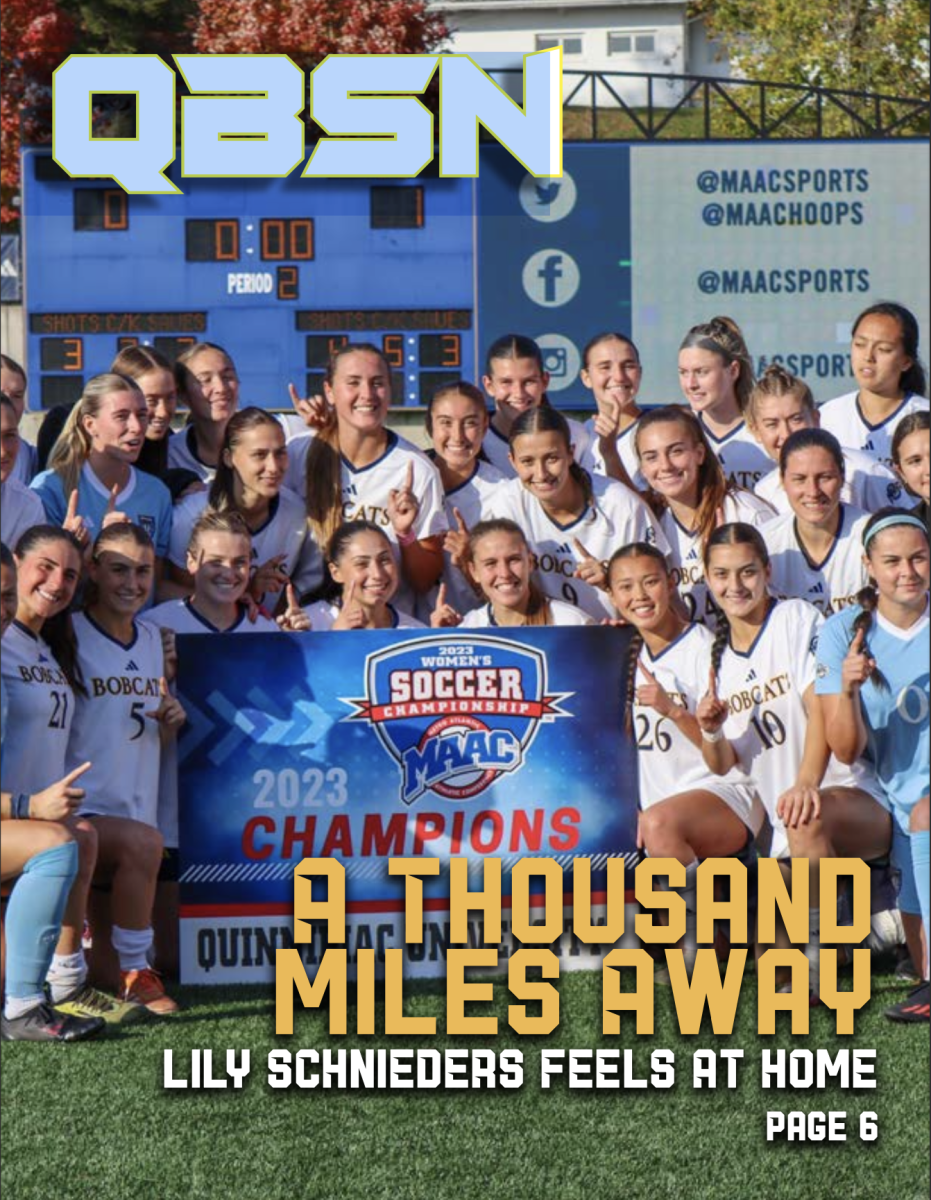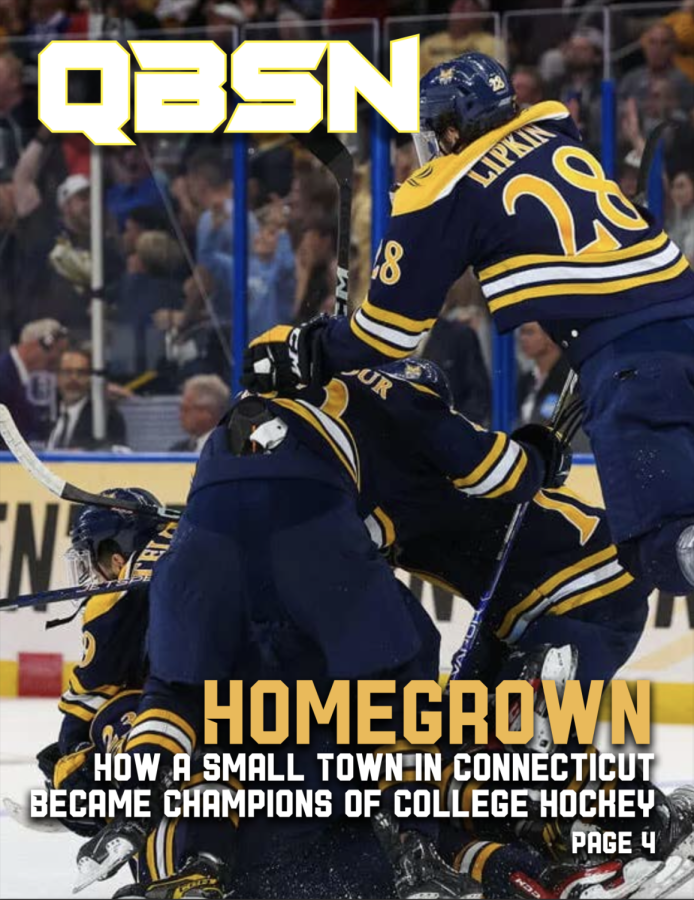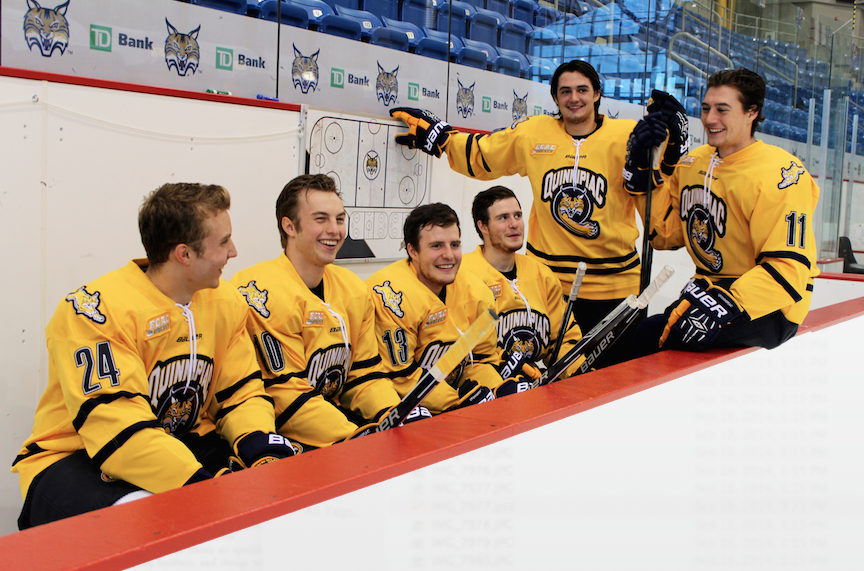
The Quinnipiac men’s ice hockey team is no stranger to siblings. This year, there are three sets of brothers on the roster.
They all remember a similar setting: playing pick-up hockey games on backyard rinks or a frozen lake on a winter day. For each pair, it’s unanimous – playing pond hockey together as kids constitutes a favorite hockey memory.
For Bo Pieper and his older brother Canon, both freshmen, it’s the memory of battling on a makeshift lake rink that still makes them both smile. “Our dad would always take his pick-up truck out on the lake, plow us a rink,” Bo says. “Then I’d always wear my red helmet, Canon would have his black helmet on, so my parents could tell us apart out there.”
Sophomores Tim and Connor Clifton tell stories that are a continuous stream of consciousness – it’s hard to tell when one stops and the other pipes in. Though Tim is three years older than Connor, they’ve played together on Lake Lefferts, which they now live on, since Connor was about 3 years old.
“He didn’t know how to skate,” Tim says.
“I barely knew how to walk,” Connor adds.
“But we skated on that thing until our skates fell through,” Tim says. “Until it was springtime.”
Sometimes it’s the parents who want their sons to continue to play together as they move up in the hockey world, but most of the time the desire comes from the men themselves. Such was the case for freshmen twins Nathan and Jonah Renouf.
“We’ve been on the same line our whole lives, played on the same team, even in other sports,” Nathan says, looking at his brother.
“There hasn’t been a year where we haven’t been together,” Jonah says.
The Cliftons also planned on playing together in college. They spent one year apart, when Tim played for the Jersey Hitmen and Connor left the Hitmen for the U.S. National Development Team. It was more evident than ever after that year that they wanted to pursue NCAA ice hockey as a package deal, so they both came to Quinnipiac University for the 2013-14 season.
While the Cliftons and Renoufs were set on playing together, the Piepers were open to anything. But this worked out perfectly for head coach Rand Pecknold.
“In all these situations, we’ve wanted both brothers,” Pecknold says. “We want both sides. They’re all good players and for us, recruiting-wise, when you get one good player, you’re really getting two. It makes it easier.”
Pecknold says there’s no specific strategy in recruiting brothers, and shrugs when he says, “it just worked out that way,” but there’s no denying it has benefited him in the past. Any Bobcat fan knows the names Connor and Kellen Jones – twins from British Columbia who were co-captains their senior year and both joined the team’s 100-point club within three weeks of one another. Pecknold says it was a “huge recruiting battle” to secure the two of them. He also recruited Alex Barron, who played on the team with his older brother Loren for a year.
It wasn’t necessarily the success of the Jones twins that drew the Cliftons, Piepers and Renoufs to Quinnipiac, but instead Pecknold himself and the program as a whole.
“I think we just knew…” Tim says.
“We’d develop the best here,” Connor finishes.
It’s as simple as that. The feeling is mutual across the board. Seeing the team become a national contender with its Frozen Four run in the 2012-13 season solidified that thought for each set of brothers. The success of players like the Jones twins, Eric Hartzell and current co-captain Matthew Peca has helped Pecknold secure top recruits.
His leagues of choice: the British Columbia Hockey League (Joneses, Renoufs, Piepers) and the Eastern Junior Hockey League (Tim). The current 27-man roster has 10 BCHL recruits and seven EJHL recruits.
The Piepers and Renoufs all bring strong resumes to Hamden, finishing in the top 40 in BCHL scoring. The Piepers established themselves as proven goal scorers while playing for the Coquitlam Express. Canon’s 33 goals ranked him fifth in the league while his brother Bo ranked in the top 15, with 27. The Renouf twins each bring playmaking abilities to Quinnipiac. While playing for the Surrey Eagles, Jonah’s 41 assists ranked him in the top 10 and gave him family bragging rights over Nathan, who recorded 34 assists.
Tim established himself as a reliable center last season in his freshman campaign for the Bobcats. In Juniors, his 30-goal season tied him with then-teammate and current Colgate University forward Andrew Black for the most goals in the EJHL. He led the Jersey Hitmen to a league championship during the 2012-13 season.
“When you recruit out of the top Junior A leagues, you have a better chance of success,” Pecknold says. “You know what you’re getting. They’re playing at a high level, they’re succeeding at a high level, and they’re more likely to succeed when they get to us.”
The only drawback with recruiting these brothers, Pecknold says, is putting players in the lineup when they all have the same last name. Add in Derek Smith and Landon Smith, who aren’t even brothers, and Pecknold has his work cut out for him.
“That’s the hesitation from some coaching staffs that don’t want to deal with that extra headache, but to me it’s like we’ve got our 20 guys that are going to be in the lineup every night and we’ve got our extra guys that will rotate in and out so you have got to deal with it either way,” he says.
And it’s worth it. These men not only have their junior hockey experience, but also can continue to compete with someone who already knows how they play and what they need on the ice. For Bo, communication with his brother is key.
“It comes to a point where I know where he is on the ice because we’ve talked about it,” Bo says. “We get comments like, ‘Oh, you guys have that brother connection,’ well, it’s just because we talk on the ice and we try to figure things out, between the two of us.”
Off the ice, some of the brothers get a bit more competitive with each other. Five of the six on the team – all except Canon – are engineering majors, so they have similar classes and similar schedules. This means they sometimes go head to head.
“[We’re] terribly, terribly competitive,” Tim says. He and his brother exchange knowing glances and laugh. “Down to everything … who eats more for lunch, who got the better grade, who wakes up earlier. Just the dumbest things … that shouldn’t be competitive at all. It just winds up you always want to be one step ahead of him.”
Despite the occasional competition, all of the brothers say they push each other to be better. They stay after regular ice time to practice shooting, stickhandling and their technique together. When they get back to their rooms, they serve as a built-in support system for one another, something the Renoufs are grateful for.
“It does help,” Nathan says, “having someone there who understands what you’ve gone through to get there, understands what you have to do to get better and can get on you to get better, so you have someone always on your back pushing you.”
The twins’ time living on their own while in the BCHL brought them even closer. “We got better at supporting each other,” Jonah says. “I think before we would bicker a little more but with getting away from home, being with each other, I think we lean on each other a little bit more.”
It also makes the transition into a college environment a bit easier. Canon says both he and Bo are laidback, so they were already at ease moving to school.
“I think it takes a lot of the stress out of it,” Canon says. “I can’t imagine moving in with some complete stranger.”
Bo agrees: “I’ve always got someone I can talk to because school does get hard some times, hockey gets hard sometimes, everything gets hard at times.”
Like the others, Bo goes to his brother first when things get rough.
“He is the guy on the ice who calms me down … he’s my best friend,” Bo says of his brother, who nods.
“It goes both ways,” Canon says.
“On and off the ice,” Bo finishes.


